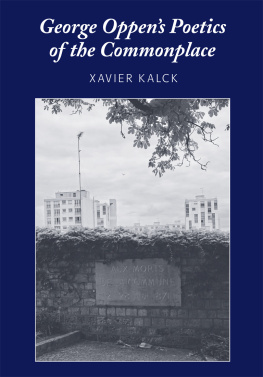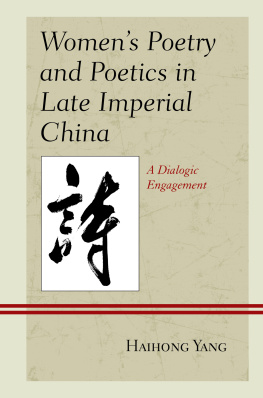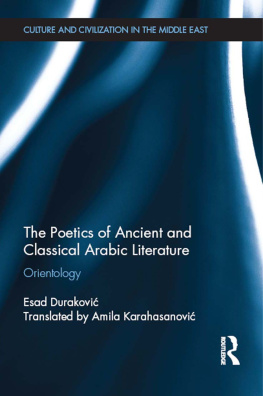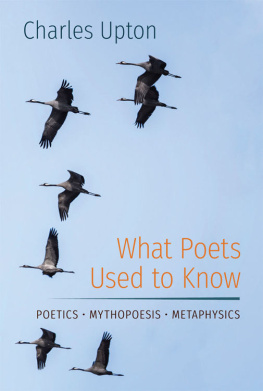
CLASSICAL LITERARY CRITICISM
PLATO (c. 429347 BC) stands with Socrates and Aristotle as one of the shapers of the Western intellectual tradition. He came from a family that had long played a prominent part in Athenian politics, and it would have been natural for him to follow the same course. He declined to do so, however, as he was disgusted by the violence and corruption of Athenian political life, and especially sickened by the execution in 399 BC of his friend and teacher, Socrates. Inspired by Socrates inquiries into the nature of ethical standards, Plato sought a cure for the ills of society not in politics but in philosophy. At an uncertain date in the early fourth century BC he founded the Academy in Athens, which was the first permanent institution devoted to philosophical research and teaching, and the prototype of all Western universities. He travelled extensively, notably to Sicily as political adviser to Dionysius II, ruler of Syracuse. Plato wrote over twenty philosophical dialogues and there are also extant under his name thirteen letters, whose genuineness is keenly disputed.
ARISTOTLE was born at Stagira, in the dominion of the kings of Macedonia, in 384 BC. For twenty years he studied at Athens in the Academy of Plato, on whose death he left, and some time later became tutor to the young Alexander the Great. When Alexander succeeded to the throne of Macedonia in 336 BC, Aristotle returned to Athens and established his own school and research institute, the Lyceum, to which his vast erudition attracted a large number of scholars. After Alexanders death in 323, anti-Macedonian feeling drove Aristotle out of Athens and he fled to Chalcis in Euboea, where he died in 322 BC. His writings, which were of extraordinary range, profoundly affected the whole course of ancient and medieval philosophy, and they are still eagerly studied and debated by philosophers today. Very many of them have survived, famously the Ethics and Politics.
HORACE, the Latin lyric poet and satirist, was born in Venusia in Apulia in about 65 BC. He was educated in Rome and Athens. In 44 BC Horace enlisted in Brutuss army and fought at Philippi as a military tribune. Ensuing poverty, he says, drove him to write poetry. Horace is said to be the most quoted author of antiquity, appealing to a wider range of readers of every age and at any age than any other ancient poet.
It has long been thought that the treatise On the Sublime was written by CASSIUS LONGINUS, who was a third-century AD Greek rhetorician and minister of Zenobia, queen of Palmyra. However, it is now generally ascribed to an unknown Greek author writing in the mid first century AD.
T. S. DORSCH was Professor of English at the University of Durham from 1968 until his retirement in 1976. He also taught at Westfield College, University of London, where he was Reader. His publications include the Shakespeare section of The New Cambridge Bibliography of English Literature (1974). Professor Dorsch died in June 1991.
PENELOPE MURRAY was born in Malaya in 1948, and was educated at Wycombe Abbey school and Newnham College, Cambridge. She held research posts at Kings College, London, and St Annes College, Oxford, and was a founder member of the department of Classics at the University of Warwick, where she is currently Senior Lecturer. She has written on a wide variety of topics in ancient literature, and her publications include Genius: The History of an Idea (1989) and Plato on Poetry (1996). She is working on a book about the Muses.
CLASSICAL LITERARY CRITICISM
Translated by PENELOPE MURRAY
and T. S. DORSCH, with an Introduction
and Notes by PENELOPE MURRAY
PENGUIN BOOKS
PENGUIN BOOKS
Published by the Penguin Group
Penguin Books Ltd, 27 Wrights Lane, London W8 5TZ, England
Penguin Putnam Inc., 375 Hudson Street, New York, New York 10014, USA
Penguin Books Australia Ltd, Ringwood, Victoria, Australia
Penguin Books Canada Ltd, 10 Alcorn Avenue, Toronto, Ontario, Canada M4V 3B2
Penguin Books (NZ) Ltd, Private Bag 102902, NSMC, Auckland, New Zealand
Penguin Books Ltd, Registered Offices: Harmondsworth, Middlesex, England
First edition published 1965
This edition published 2000
1 3 5 7 9 10 8 6 4 2
Copyright Original translations by T. S. Dorsch, 1965
Introduction, revised translations, new
material and notes by Penelope Murray, 2000
All rights reserved
The moral right of the editor has been asserted
Except in the United States of America, this book is sold subject
to the condition that it shall not, by way of trade or otherwise, be lent,
re-sold, hired out, or otherwise circulated without the publishers
prior consent in any form of binding or cover other than that in
which it is published and without a similar condition including this
condition being imposed on the subsequent purchaser
EISBN 9780141913407
CONTENTS
INTRODUCTION
Literary criticism is a label that covers a number of different activities. In the narrow sense in which it is customarily used today, it refers to the analysis and interpretation of texts; but in its wider application literary criticism is concerned with more fundamental questions about the nature and function of literature: what is literature? How is it created? What are its effects? How do we evaluate it? Literary criticism can include scholarly exegesis, evaluative judgement, prescriptive criticism, literary history, and theory, and thus might be broadly defined as discourse about literature. But literature itself is not a stable or self-evident category, so that discourse will inevitably vary with the changing nature of the literature that is its object. As T. S. Eliot observed, Our criticism from age to age will reflect the things that the age demands.
In the Western tradition, attitudes to literature have been profoundly shaped by the great writers and thinkers of classical antiquity. For it was they who invented much of the critical vocabulary and terminology which we still use today, and, as with so many areas of our culture, it was they who first formulated some of the most basic and enduring questions. Literary critics throughout the ages have returned again and again to classical themes, and it would scarcely be an exaggeration to say that the history of criticism cannot properly be understood without some knowledge of the key ancient texts from which later approaches to literature were developed. Principal amongst these are the works of the four authors presented in this volume Plato, Aristotle, Horace and Longinus all of whom have exerted a seminal influence on the discourse of criticism in the Western world.
Before turning to the texts themselves, however, some account needs That striking image reminds us that the Poetics is not only the starting point, but also the culmination, of a tradition. Many of its ideas have their roots in the literature of earlier periods, and behind it lies a whole inheritance of speculation about the nature of poetry which goes right back to the first-known Western poet, Homer. Indeed, the origins of criticism in Greece are deeply bound up with poetry, for it is in response to poetry that many of the fundamental doctrines of ancient literary criticism are formulated, and it is inpoetry that the impulse to criticism first manifests itself. Theoretical discourse about literature and the critical analysis of it, what we might call criticism proper, is, of course, a subsequent development, but in order to understand that development we need to consider the ways in which poetry was envisaged by poets themselves in the pre-theoretical period. For criticism has its beginnings in the reflections of the early Greek poets on the nature of their art.









